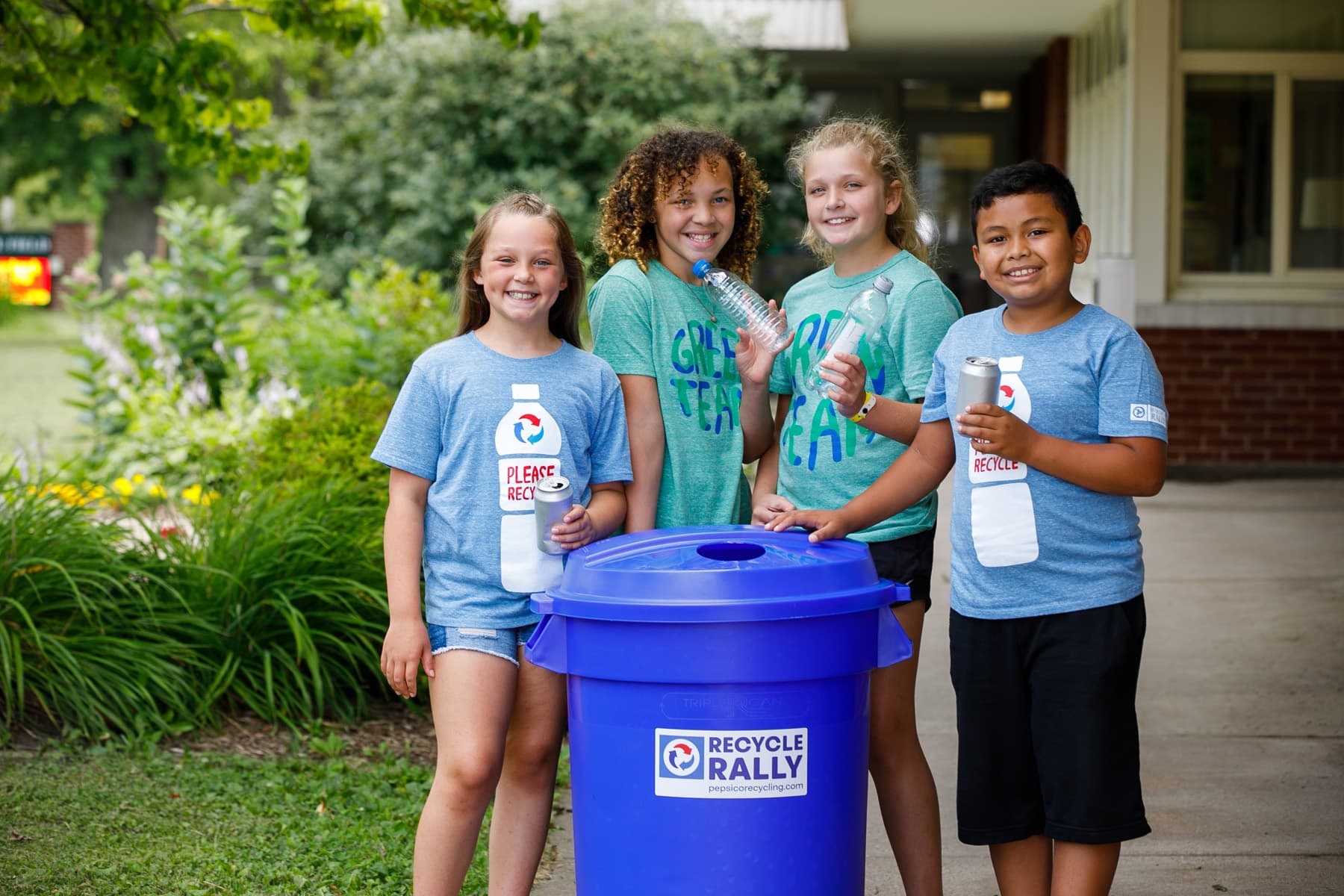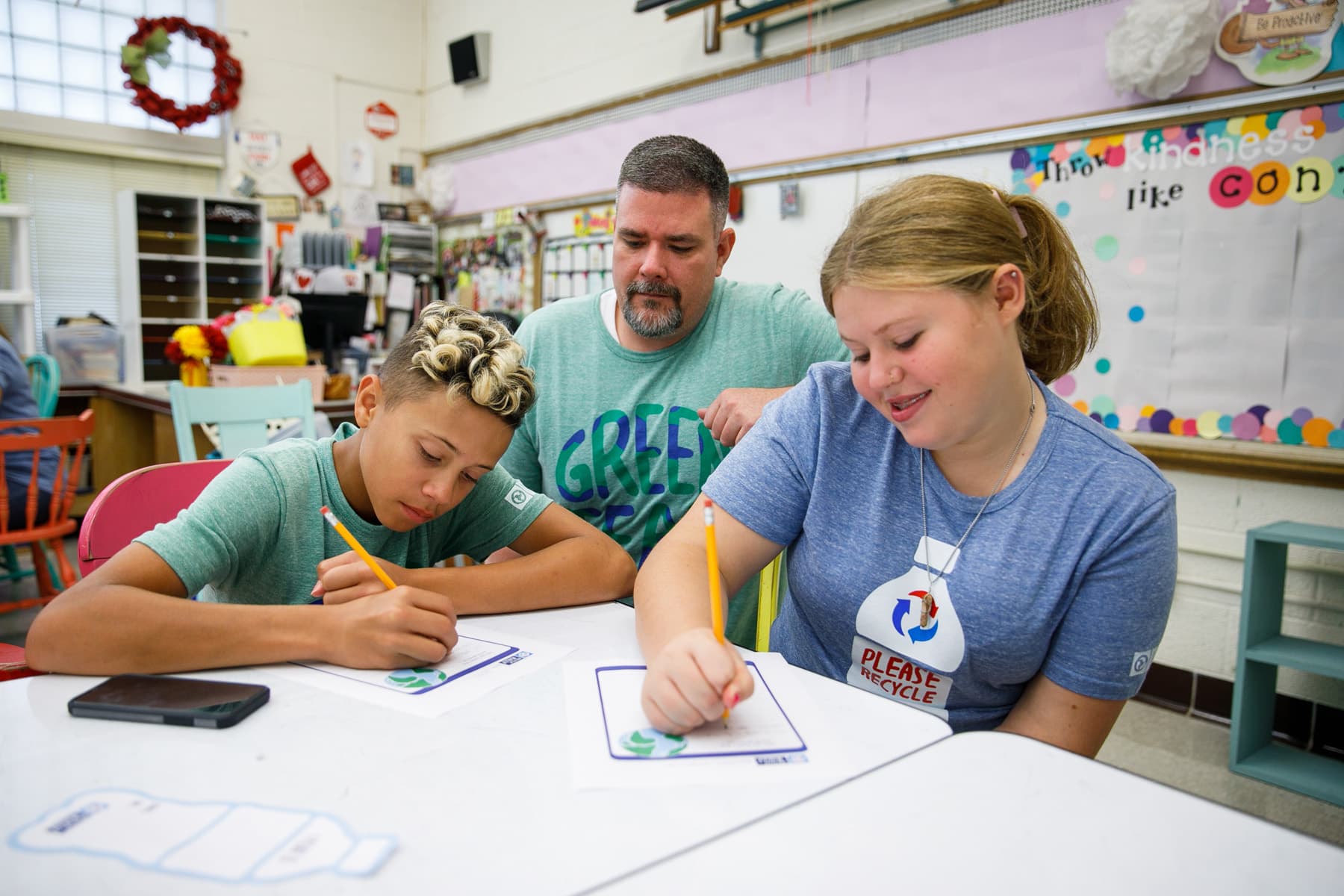What Student Councils Can Learn By Managing Your Recycling Program
We love these leadership ideas!

Imagine learning how to create a sustainability program while still in high school. What an impactful way to make a difference. Joining a student council gives students the opportunity to be the voice of their student body, but it does so much more as well. Elected student leaders set goals, represent their peers, and plan and manage important projects. A recycling program can be the perfect way to get student councils deeply engaged in a meaningful way.
What is a student council?
The National Association of Secondary School Principals (NASSP) seeks to “transform education through school leadership, recognizing that the fulfillment of each student’s potential relies on great leaders in every school committed to the success of each student.”
As part of its commitment to the development of student leadership, the NASSP administers the National Student Council (NatStuCo), which represents middle level and high school councils nationwide. The mission is to “provide a valuable leadership partnership between students and their school. It creates the opportunity for students to become effective leaders, thus encouraging and influencing a positive school climate.”
While the purpose of a student council will vary from one school to another, NatStuCo encourages all schools to focus on:
- Leadership
- Service
- Student Voice
- Engagement
A student council recycling project is a wonderful way to give leaders the chance to make an early positive impact.
Student leaders who manage recycling programs build social and emotional learning (SEL) skills.
The NatStuCo supports the development of student leadership abilities. When student council members learn how to start and manage a school community’s recycling program, they also learn many of the SEL skills research has shown make a difference in student long-term success.

Not only is a student council recycling program building SEL skills, but the roles and associated duties of a school’s Green Team align well with those of the student council:
- President: Runs and oversees meetings (usually an older, more experienced student).
- Vice President: Supports the President, helps run meetings, and promotes unity within the team.
- Secretary: Keeps track of upcoming events and team meetings, takes notes and attendance.
- Treasurer: Maintains the budget, tracks funds and reward points, supplies, and fundraising efforts.
Another benefit of a school council recycling program is that students will naturally work together to get school administrators involved, establish a school recycling routine, and promote the recycling program. Learning about relationships and planning processes that go along with a recycling program gives kids a head start after graduation.
Student council recycling programs meet service-learning requirements.
According to the NatStuCo, student councils should help “build a climate of caring and tolerance through volunteerism and service to others.” Beyond that, service-learning projects can benefit all students and often are a requirement for graduation. These types of projects provide learning experiences to help students develop educational and personal skills.

A well-organized student council recycling project gives kids the opportunity to affect positive change in their schools. The impact of environmental sustainability efforts can also have an impact on the community.
Some ideas for recycling (or sustainability) projects include:
- Organizing a park cleanup
- Starting a school-wide recycling initiative
- Composting and growing a school garden
- Promoting awareness of local environmental issues
To get started, the student council will need to determine the kind of recycling project they’d like to tackle — direct service, indirect service, advocacy, or research.
Student sustainability programs help students develop voice and community engagement.
The student council should act “as the voice of the student body, giving every student an opportunity to be heard.” Enlisting the help of fellow students is crucial, as it can take time to find an organization to support or the right kind of student council recycling project.

An important role of the student council is to encourage “students to become involved in school and community leadership and decision making.” This aligns with NatStuCo’s Raising Student Voice & Participation (RSVP) “student engagement program involving an entire school to participate in dialogue aimed at school and community improvement measures.”
The student council, student body, and staff can join forces to transform campus culture and promote sustainable school practices. A recycling program is a great medium for creating leadership opportunities, shared goals, and long-term commitment.
Recycling project leaders can celebrate their community achievements.
Spearheading a student council recycling project is hard work. It takes long hours of brainstorming, planning, and coordinating to successfully implement a school recycling program. That’s why it’s so important to find ways to celebrate milestones and recognize leadership.

Want to highlight the exceptional efforts in your school? The National Student Council’s National Council of Excellence (NCOE) program provides two levels of national recognition to “middle level and high school student councils that consistently provide quality leadership activities and service to their schools and communities.”
Creating a student council recycling project embraces the NASSP mission and benefits the entire school and surrounding community. Participants gain valuable leadership skills while also doing their part to protect the environment. It’s a win-win for everyone!
Learn More

Recycle Rally
Recycle Rally is a free K-12 program that provides rewards and tools to help enhance recycling at your school!
Explore now
Additional Resources
Our comprehensive library of resources was designed to inspire the next generation of green leaders.
Explore now


